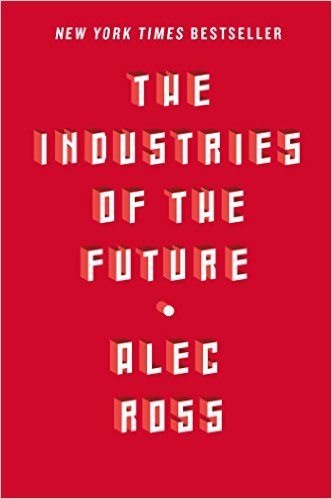At Northern Slant, you might have come across our weekly ‘Northern Roots’ series. Every Saturday we interview someone originally from Northern Ireland but living elsewhere.
I love it. We’ve had so many captivating interviewees with some inspiring stories to tell. Most of all, I love the series because it offers a refreshing sense of perspective, getting a sense of people’s reflections on the place they call home now that they’re on the outside looking in.
I am always fascinated by people’s responses to the question, “Are you hopeful for Northern Ireland’s future?” Sometimes interviewees are optimistic, sometimes less so. I was particularly struck by Shane Greer’s answer in this weekend’s interview:
The big challenge … is economic. And that’s where I do feel a lot of concern. Not because of Brexit, but because we live in a globalized world that’s being transformed by automation and artificial intelligence. Northern Ireland is a small place with an economy dominated by the public sector. If it wants to compete, meaningfully, in the future it can’t continue to rely on the public purse. I worry that it will be too slow to adapt to that reality, and that when it does adapt, the boat will have already sailed. That, more than anything else, is Northern Ireland’s biggest challenge.
Shane’s concern reminded me of the most thought-provoking book I’ve read in the past year. In Industries of the Future, Alec Ross considers how the next ten years of innovation will transform our lives – at work and at home.

Alec Ross served as Hillary Clinton’s Senior Advisor for Innovation
Ross grew up in the small city of Charleston, West Virginia and went on advise investors, corporations and governments, before serving as Hillary Clinton’s Senior Advisor for Innovation when she was Secretary of State. He sets the scene by reflecting on his hometown, a place that he recognises as having ended up ‘on the wrong side of globalization’ in recent decades.
Places like Charleston benefitted from the ‘old economy’. When the Industrial Revolution took hold, it became an economic powerhouse thanks to West Virginia’s abundant supply of coal. This raw energy source allowed factories and a strong manufacturing presence to develop. But with mechanisation and globalization, machines could take the job of miners and corporations could manufacture their products overseas at a fraction of the price.
In some ways Belfast and other parts of Northern Ireland have experienced a similar challenge – later exacerbated, of course, by conflict. Belfast was at its peak at the turn of the twentieth century, with the largest rope-works in the world, the largest tobacco factory in the world, and a shipyard building the largest ships in the world. It was unable to sustain this heavy industry and manufacturing presence on such a scale.
Nearly two decades into the twenty-first century, the global economy is still coming to terms with a huge transformation:
Whereas land was the raw material of the agricultural age and iron was the raw material of the industrial age, data is the raw material of the information age.
Innovation in the information age “brings both promise and peril.”
Let’s cut to the chase and start with some of the perils. Further automation poses a threat not just to manufacturing jobs, but also to jobs in the service industry that collect and use data. Advances in biomedical sciences will facilitate the creation of designer babies. The prospects of cyberwar will continue to grow; toasters, fridges and kettles could be hacked for their computing power.
The opportunities lie in harnessing technology effectively and appropriately. Imagine the growth potential of the robotics industry, and how robots might be able to reduce work-related injuries, cut the number of traffic accidents and even perform less invasive surgical procedures.
Meanwhile, genomics “will become a trillion-dollar industry, extending lives and nearly eliminating diseases that kill hundreds of thousands of people a year today.” Simpler than that, smartphone apps will help connect millions of Africans with healthcare expertise in regions that currently have the lowest ratios of doctors to people on the planet.
The growth of cyberspace and the Internet of Things presents a massive economic opportunity. As Ross remarks, “If any college student asked me what career would most assure 50 years of steady, well-paying employment, I would respond, ‘Cybersecurity’.”
The debate on the balance between online liberty and online security is only just beginning, but Ross’s observation is hard to dispute. When it comes to cybersecurity the growth in demand has been steep; “the need will be sustained, and this ever-growing need currently comes up against a major talent shortage.”
Thinking about the future is a daunting task – let alone preparing for it. In many ways, however, it is precisely because the future is so daunting that it makes every sense to prepare for it.
This is where Alec Ross makes such a significant contribution. Call it a warning, or call it inspiration. His thoughts on the future course of innovation should be taken seriously – for their implications on society as well as the economy.
Will places like Northern Ireland sit up and take note, or will they ignore technological trends and risk falling behind? It’s humans, not robots, who will make that call.
 Industries of the Future: How the Next 10 Years of Innovation Will Transform Our Lives at Work and Home (2016) is published by Simon & Schuster.
Industries of the Future: How the Next 10 Years of Innovation Will Transform Our Lives at Work and Home (2016) is published by Simon & Schuster.
Also published on Medium.
